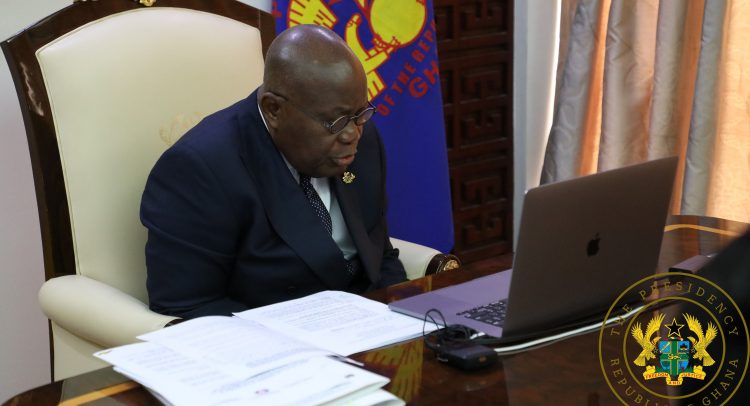President Nana Akufo-Addo minced no words in calling out countries who claims to have developed vaccines for the cure of the dreaded coronavirus pandemic when he addressed the 75th United Nations General Assembly meeting which was held virtually.
In a video message, he said “we’ve all gone down together; we should all rise together” and that “if the answer to this pandemic lies in finding a vaccine, that vaccine should be made available to the whole world; rich and poor alike, developed and developing, all races and all beliefs.”
That, he said was because “the virus has taught us that we are all at risk and there’s no special protection for the rich or a particular class.”
He insisted that “for as long as the virus exist, whatever medical solutions that might be found should be made available for all in aid of our common humanity.”
The Organization for Economic Cooperation and Development (OECD) has said that Covid-19 has brought in its wake “a significant reduction in the financing available to developing economies.”
It also estimates that “external private finance influence to developing economies could drop by US$700billion in 2020 compared to 2019 levels, exceeding the immediate impact of the 2008 Global Financial Crisis by 60%.”
President Akufo-Addo therefore indicated that “all the sacred economic rules by which we have been urged to conduct affairs in the past century have been thrown out at least for the moment.”
Whiles he admitted to the fact that “all our best laid plans have turn out to be of no use when faced with the ravages of an unknown virus”, he however told his colleague world leaders “we in Ghana have however chalked model successes in trying to defeat the virus through resolute actions by my government with the cooperation of the Ghanaian people and the grace of the Almighty.”
For him, the virus has thought the world a clear lesson which is that “we all fell together and looked into the abyss together. Even as we closed our borders and shut airports, the reality dawned on all of us that we had to rely on each other to be able to get out of the trouble we were in.”
He therefore noted that “the restructuring of the global financing architecture to enable access to fresh capital by developing nations, now more than ever is of immediate necessity, if the gains chalked in transforming the economies, are not to be eroded and the standards of living of the peoples not to be dangerously lowered.”
By Charles Takyi-Boadu, Presidential Correspondent


